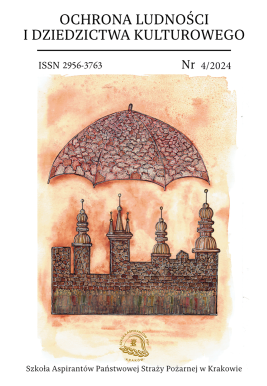Ograniczenie praw własności
na tle ustawy o ochronie zabytków i opiece nad zabytkami
Restrictions on ownership against the background of the Act on the protection and care of monuments
Author(s): Monika WyszomirskaSubject(s): Museology & Heritage Studies, Architecture, Social history, Sociology of Culture
Published by: Wydawnictwo Uniwersytetu Jagiellońskiego
Keywords: protection of monuments; property rights of monuments; fire protection; cultural heritage;
Summary/Abstract: The protection of monuments, as one of the basic values guaranteeing the preservation of cultural heritage, was included not only in the Act on the protection and care of monuments, but also received constitutional protection (Article 5, Article 6 and Article 73 of the Constitution of the Republic of Poland). Due to the fact that owners of monuments constitute a special group of entities involved in the process of monument protection, in this publication the author analyzed their legal position in the context of exercising the constitutional right to property protection. The rights of owners of monuments, guaranteed in Art. 64 of the Constitution, once a property is entered in the register or register of monuments, they are severely limited both in terms of use and disposal of the property. Covering this area of issues in the research process was extremely important, which is also confirmed by the judgment of the Constitutional Tribunal of May 11, 2023 (reference number P 12/18) discussed in the article, declaring the unconstitutionality of Art. 22 section 5 point 3 of the Act on the protection and care of monuments. After conducting a legal analysis, the author, using the principle of proportionality specified in Art. 31 section 3 of the Constitution indicates that the protection of monuments does not have to be contrary to the principle of property protection, provided that the values are balanced rationally and proportionately by the legislator. Formulating de lege ferenda postulates, the author proposes that, as a result of an interdisciplinary substantive dialogue, the Act on the protection and care of monuments should be re-examined in order to eliminate provisions introducing excessive and disproportionate restrictions on the exercise of property rights and to construct transparent and precise regulations that will serve the state and the owners of monuments for efficient management of cultural assets.
Journal: Ochrona ludności i dziedzictwa kulturowego
- Issue Year: 2024
- Issue No: 4
- Page Range: 9 - 25
- Page Count: 17
- Language: Polish

